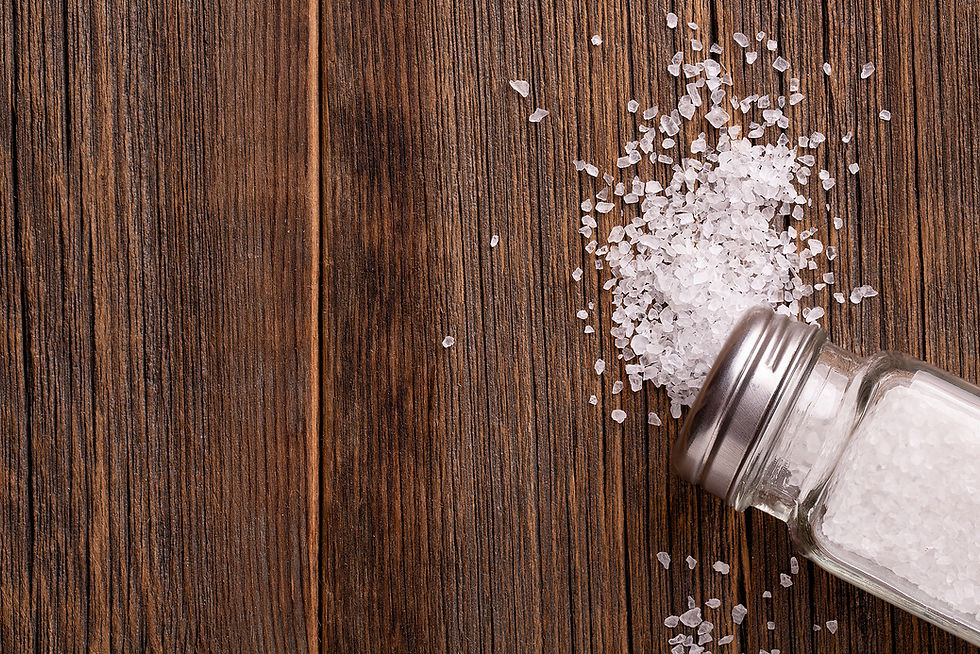
On average, Americans eat more than 3,400 milligrams of sodium each day. There are some foods that naturally contain sodium including vegetables, dairy products, meat, and shellfish. More than 70 percent of the sodium we consume comes from processed foods and eating out, not what we add at home while cooking or from the salt shaker at the table.
Excess levels of sodium may cause increased water retention that leads to puffiness, bloating and weight gain. Chronic excess levels of sodium may put you at risk for one or more of the following:
Enlarged heart muscle
Headaches
Kidney disease
Osteoporosis
Stroke
Heart failure
High blood pressure
Kidney stones
Stomach Cancer
The body does need some sodium to function properly. Sodium plays a role in the balance of fluids in your body and the way nerves and muscles work. But how much is too much? General guidelines recommend an intake of no more than 2,300 mg per day, moving toward an ideal limit of no more than 1,500 mg per day for most adults.* Some people are more sensitive to the effects of sodium than others, so it's important to listen to your body's cues to decide what is right for you.
You can't rely on your taste buds to alone to gauge how much sodium is in your food . For example, you may be surprised to learn that an average size bagel contains approximately 450mg sodium, plus another 40 to 50 milligrams of sodium per tablespoon of cream cheese. Checking labels is the only way to really know how much sodium is in your food. For tips on how to cut down on sodium in your diet, how to read Nutrition Facts labels, and better understand sodium claims on food labels visit https://www.mayoclinic.org/healthy-lifestyle/nutrition-and-healthy-eating/in-depth/sodium/art-20045479. As you decrease your daily intake of sodium, your taste will gradually adjust and you probably won't miss it....and your heart will thank you for it!
~Coach Nicole
*If you have a medical condition or other special dietary needs or restrictions, you should follow the advice of a qualified health care professional.
Resources:
Comments